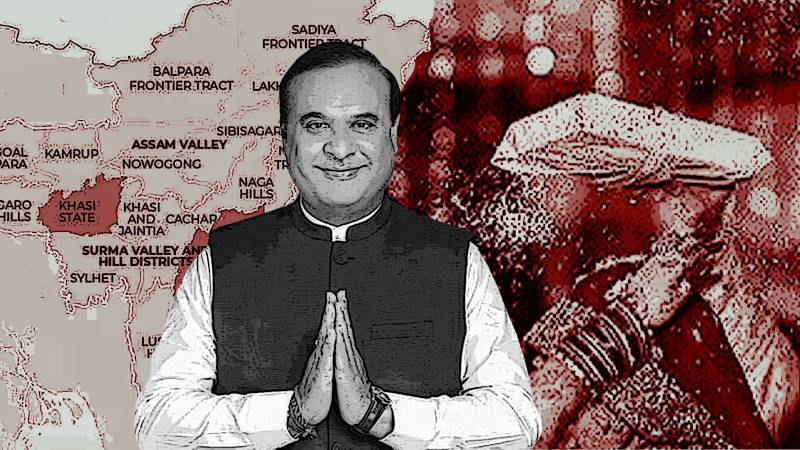
Assam seems to be the most active laboratory of BJP’s “reformative and religiously divisive politics.” This is the province where the notorious Citizenship Amendment Act came into its “brutal practice” and hundreds of thousands of Muslims were thrown into camps, and their fate handed over to the Foreigners’ Tribunal. Later, Home Minister Amit Shah pompously declared that each and every “infiltrator” (Muslims) would be thrown out of India by 2024.
One such “infiltrator,” Rahim Ali, was declared an Indian by the Supreme Court only this month – a case that has been celebrated as a milestone by the legal fraternity, but with a deep tinge of pain.
In another major step, the state cabinet has decided to repeal the Muslim Marriage Act that, according to the government, was fomenting the “evil of child marriage” which the government claims it wants to eradicate. The Act enacted by the British sought to provide for the voluntary registration of Muslim marriages and divorces. The Act also recognized “Shariat-compliant” permission to let pubertal girls below 18 to be married.
The Congress’ Assam government in 2010 had amended the 1935 Act to make registration compulsory and had left the age relaxation as stipulated in 1935 Act.
There is a central act to prevent child marriages in India – The Prohibition of Child Marriage Act, 2006. It has already been most effectively used in Assam. The Hindu, India’s most trusted newspaper last week published a report on a study titled ‘Towards Justice: Ending Child Marriage’ conducted by India Child Protection (ICP), a premier Child Rights organization. It said that there was a dip in child marriages in the state by 81% across 20 districts between the 2021-22 and 2023-24 fiscal year period.
Assam Chief Minister Himanta Biswa Sarma, while elaborating his government’s policy to repeal the Muslim Marriage Act, said that Assam has significantly lowered the phenomenon of child marriage. He also cited that 80% of these child marriages occur among Muslims, and he advocated that the repeal of the Act would be a step in the abolition of long-persisting malignant custom.
When it was being discussed on the floor of the state assembly, he exploded into a passionate speech to defend his government’s intent to repeal the law and make the Muslim marriages registered as per Special Marriage Act that divests all “Personal Law privileges” granted to Muslims.
The Special Marriage Act, besides making Muslim marriage and divorce totally a legal affair, also sets the age of marriage as 21 years for boys and 18 years for girls.
For reformists, of all hues including Muslims, the change would look like a dream reform which was due for ages. However, the way BJP has tried to exploit issues related to Muslims, like law to abolish triple talaq and even making it punishable by jail, doubts overcast genuine hopes.
CM Sarma himself hasn’t made it clear yet that when the Child Protection Act is already acting against child marriages so efficiently, why should the government temper with the Muslim Marriage Act? Or at the most, the government can introduce the age clause in the Marriage Act itself.
Rakibul Hussain, a senior advocate and Congress leader, told The Friday Times that the intention of the BJP government is clearly to make use of some anti-Muslim sentiments. He said that even before the repeal of the Act, people who were married under its provisions are being arrested on the pretext that they were married as children.
“As per my random estimate, around 200 people were arrested recently. Many of them had families with 4-5 kids. Some had to even go to the High Court to secure bail. Isn’t it unfair?” he said.
This correspondent tried to reach out to the Assam government to know their response and as soon as they will reply, it will be included in this report.
The government’s proposed bill is being debated in the ongoing monsoon session. If it passes the House test, which it seems it will, it will forecast that similar bills will be introduced in other BJP-ruled provinces, which are slipping from the party’s grasp.

